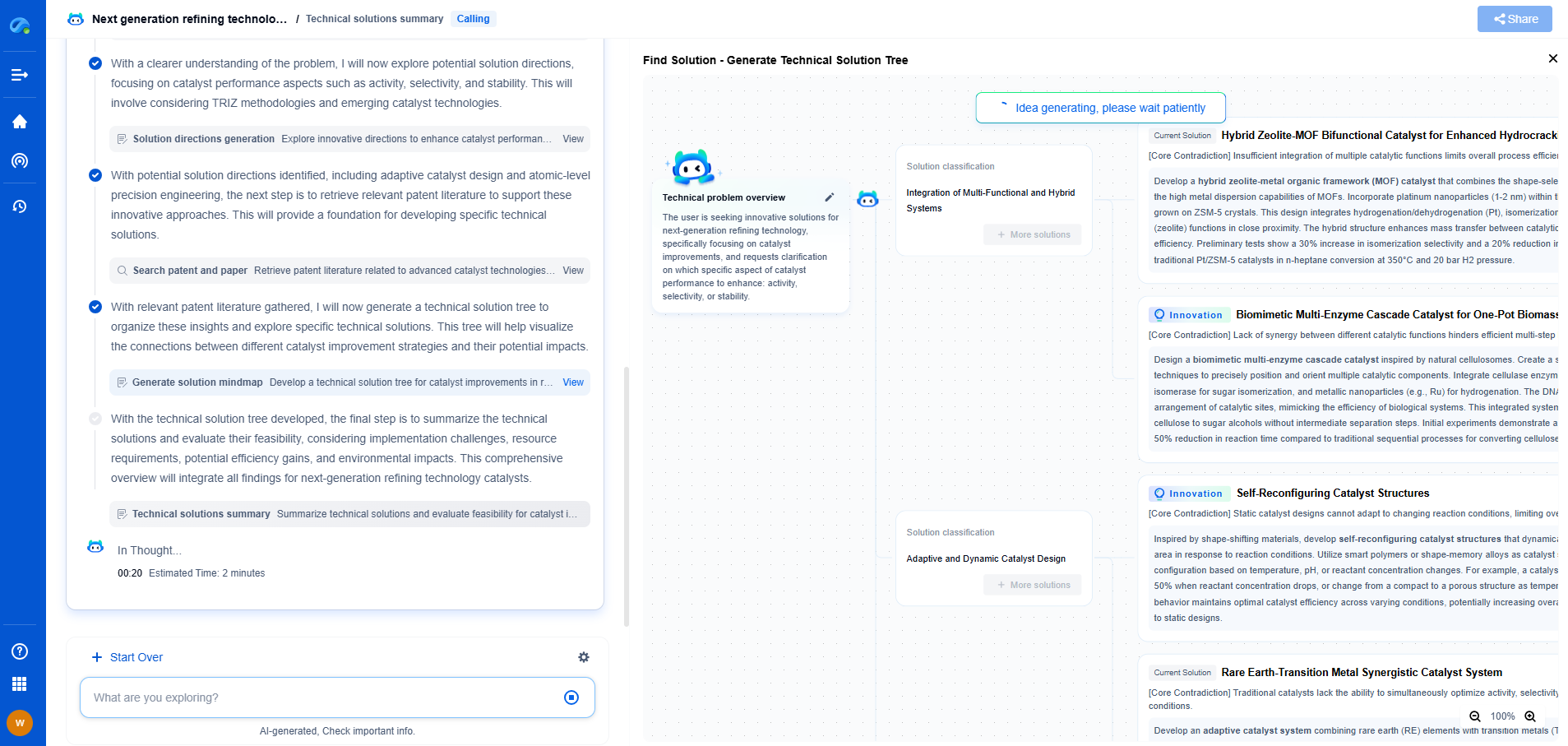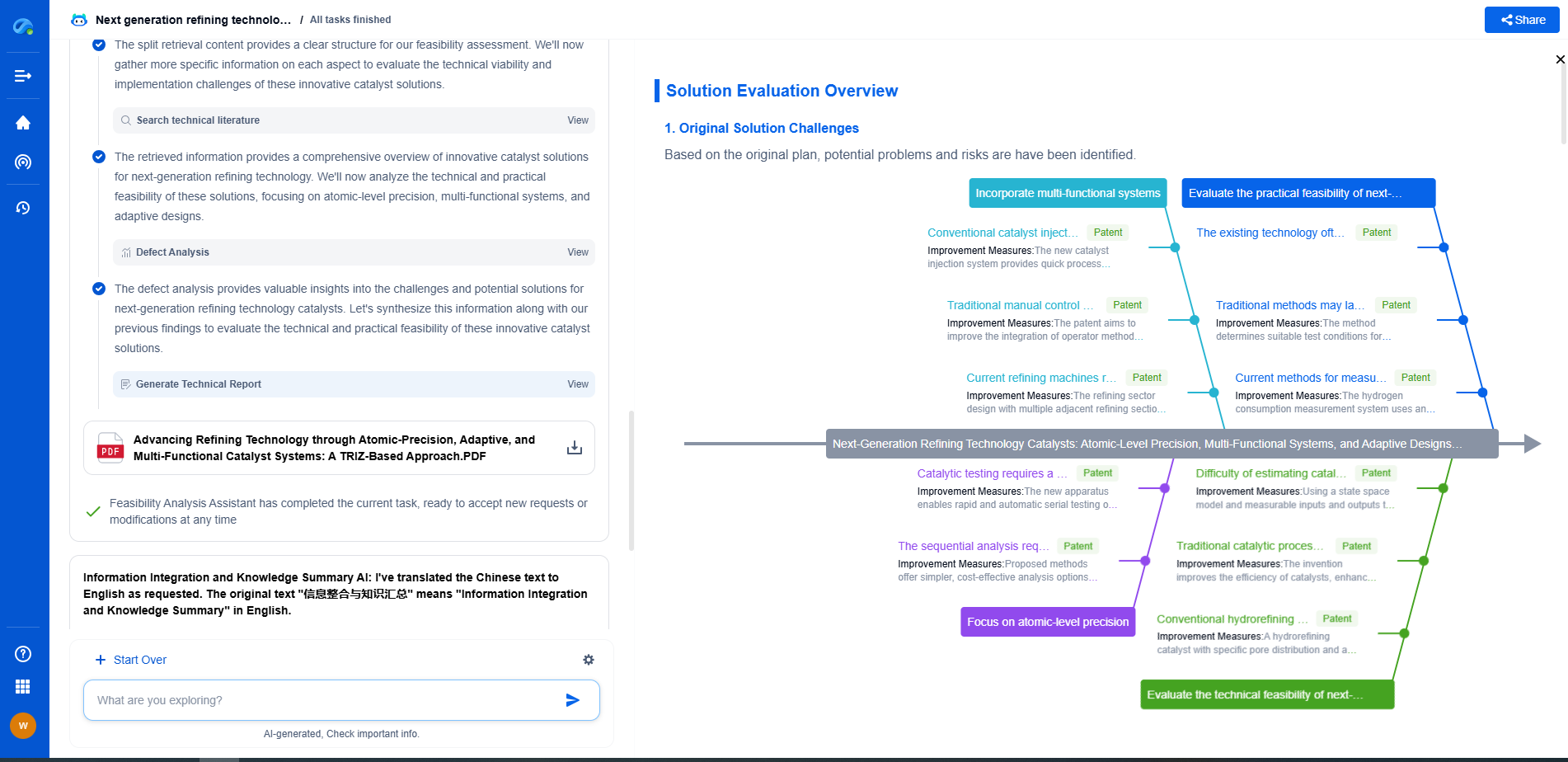DC-Coupled vs. AC-Coupled Solar + Storage: Pros and Cons Explained
JUL 22, 2025 |
As the world transitions towards more sustainable energy solutions, solar energy combined with storage systems has become increasingly popular. These systems can be configured as either DC-coupled or AC-coupled, each with its own set of advantages and challenges. Understanding the differences between these two systems can help homeowners, businesses, and installers make informed decisions about the best setup for their energy needs.
Understanding Solar + Storage Systems
Before diving into the specifics of DC-coupled and AC-coupled systems, it's important to understand the basic components involved in solar + storage systems. These typically include solar panels, an inverter, and a battery storage system. The solar panels generate electricity from sunlight, the inverter converts this electricity to a usable form, and the battery stores excess energy for later use.
What is a DC-Coupled System?
In a DC-coupled solar + storage system, the solar panels and battery both operate on direct current (DC). The electricity generated by the solar panels is stored in the battery without the need to first convert it to alternating current (AC). This conversion only takes place when the electricity is needed by household appliances or sent to the grid.
Advantages of DC-Coupled Systems
1. Efficiency: One of the main advantages of a DC-coupled system is its efficiency. Since the electricity generated by the solar panels is stored directly into the battery without the need for an initial conversion to AC, fewer energy losses occur. This can lead to a more efficient system overall.
2. Cost-Effectiveness: DC-coupled systems often require fewer components and can be cheaper to install. The need for only one inverter reduces hardware costs, and the streamlined system can also lower installation expenses.
3. Simplicity: These systems are usually more straightforward in terms of design and installation, making them a favorable choice for those who prioritize ease of use and maintenance.
Challenges of DC-Coupled Systems
1. Compatibility: DC-coupled systems may have limited compatibility with existing AC infrastructure in homes. This can make retrofitting an existing solar setup more complex or costly.
2. Flexibility: These systems might not offer the same level of flexibility in terms of system upgrades or expansions. Users who anticipate needing additional storage or capacity in the future may find DC-coupled systems less accommodating.
What is an AC-Coupled System?
Conversely, an AC-coupled system involves converting the DC electricity generated by solar panels into AC before it is stored in the battery. This setup usually includes separate inverters for both the solar system and the battery storage.
Advantages of AC-Coupled Systems
1. Compatibility with Existing Systems: AC-coupled systems can be more easily integrated into existing solar installations that already use AC infrastructure. This makes them a popular choice for those looking to add storage to their current solar setup.
2. Flexibility and Scalability: These systems often allow for more flexibility and scalability, as additional components can be added without significant modifications to the original setup.
3. Reliability: In some cases, having separate inverters for the solar system and battery can increase reliability by allowing each component to be optimized independently.
Challenges of AC-Coupled Systems
1. Efficiency Losses: AC-coupled systems can experience higher efficiency losses due to the need for multiple conversions between DC and AC. This can result in slightly lower overall system efficiency compared to DC-coupled systems.
2. Higher Initial Costs: The need for separate inverters and additional components can make AC-coupled systems more expensive to install initially. This higher upfront cost can be a barrier for some users.
3. Complexity: The added components and complexity of AC-coupled systems can lead to more complicated installations and potentially higher maintenance needs.
Choosing the Right System for You
Ultimately, the decision between a DC-coupled and an AC-coupled solar + storage system will depend on various factors, including your current setup, budget, efficiency priorities, and future energy needs. Homeowners with existing solar installations may find AC-coupled systems to be more straightforward, while those starting from scratch might appreciate the efficiency and cost benefits of a DC-coupled system.
Conclusion
Both DC-coupled and AC-coupled solar + storage systems offer unique advantages and challenges. By carefully considering your specific needs and priorities, you can make an informed choice that supports your energy goals and contributes to a more sustainable future. Whether it's maximizing efficiency or ensuring compatibility with existing systems, understanding these differences is key to optimizing the benefits of solar energy combined with battery storage.
As solar technology races ahead—from perovskite cells to tandem architectures, from anti-reflective coatings to transparent electrodes—staying on top of fast-moving innovation has become a strategic imperative.
Patsnap Eureka, our intelligent AI assistant built for R&D professionals in high-tech sectors, empowers you with real-time expert-level analysis, technology roadmap exploration, and strategic mapping of core patents—all within a seamless, user-friendly interface.
⚡ Ready to accelerate your solar innovation journey? Try Patsnap Eureka today and let AI help you harness the full power of the sun—and your IP strategy.
- R&D
- Intellectual Property
- Life Sciences
- Materials
- Tech Scout
- Unparalleled Data Quality
- Higher Quality Content
- 60% Fewer Hallucinations
Browse by: Latest US Patents, China's latest patents, Technical Efficacy Thesaurus, Application Domain, Technology Topic, Popular Technical Reports.
© 2025 PatSnap. All rights reserved.Legal|Privacy policy|Modern Slavery Act Transparency Statement|Sitemap|About US| Contact US: help@patsnap.com

